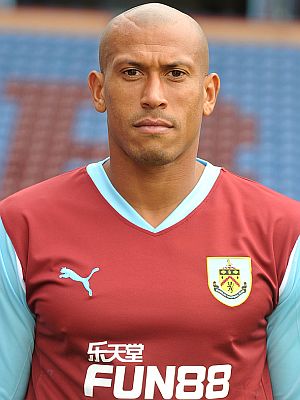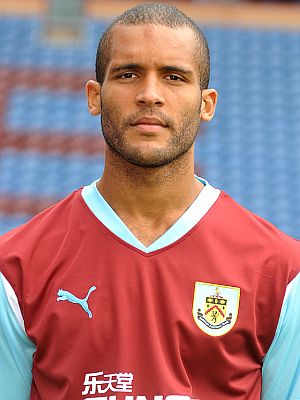|
Every supporter will have their own explanation for this underachievement. But it seems to me that it is a combination of factors, stretching back almost a full year to the decision to retain Brian Laws last May. It was reported then that the decision split the board. Laws, already stumbling through a mission to establish his own credibility, was damaged still further by that very public disagreement.
This isn't intended to be another witch-hunt against Brian Laws; there have been plenty of those already, and this is written with the benefit of hindsight. But the weakness of his position resulted in a team which has never amounted to the sum of its parts this season - let alone the amount invested in those individual parts.
Rarely, if ever, can a Burnley side have been so ill-balanced or contained so many dysfunctional units: only down the right, where Tyrone Mears has combined nicely with both Chris Eagles and Wade Elliott at different times, have two players within the team consistently worked effectively in tandem.
At the back, Laws' first choice partnership - if that is the word - of Bikey and Carlisle comprised two mentally suspect, occasionally clumsy players who are at their best alongside assertive organisers and leaders. In midfield, Dean Marney and Jack Cork never quite gelled, between them lacking the physicality to grab games by the scruff of the neck or the quality in possession necessary to enable the team to play through opponents consistently.
And further forwards, the decision to bring in Chris Iwelumo to play as a lone striker confounded all logic. Iwelumo's success at his previous clubs was, it appears, achieved whilst partnered with a mobile player capable of running beyond him, and in teams playing a direct style of football.
But at Burnley, he was expected to link with an attacking unit otherwise more suited to a smoother, passing style and which, with the debatable exception of Eagles (and Paterson, with whom Iwelumo was never deployed in a front two), lacked a player capable of making those necessary runs from either an advanced midfield or a striking position. And in any event, Laws never resolved the conflict between the need to push a player forwards to support Iwelumo and his continuing commitment to deploying Graham Alexander in a holding role. As a result, we rarely got the best from Iwelumo, or from the players surrounding him.
Eddie Howe has done his best to grapple with these myriad confusions and contradictions, but the fact that he inherited them at all is indicative of the confusion which characterised the club's squad building last summer. Had a more mobile, natural replacement been sourced for the departing Steven Fletcher, the teams attacking pivot might not have jarred so obviously with the rest of the team. And had Carlisle, Duff and Alexander not been offered substantial new contracts, many of those problems might have been avoided.
But above all else, the consequence of retaining those players was to create a core of senior players whose ambitions had been quenched, rather than piqued, by the Wembley promotion of 2009.
There is no evidence to suggest that they haven't played or trained with heart this term. But there is a difference between basic professional pride and the sort of relentless, all-consuming desire shown by the team which won promotion, particularly by the group of senior players who were persuaded by Owen Coyle to view that quest for promotion as the fulfilment of their professional careers.
It was perhaps inevitable that those players would struggle to recapture that intensity this time around. So it has proved. From a distance, it seems that too many of the established players have allowed themselves to be distracted from the collective goal - and that lack of focus has been reflected by the squad as a whole.
|
You could make the same point by reference to any of the teams which have performed well this season. QPR may have had plenty of cash at their disposal, but without Neil Warnock's uncompromising leadership, it probably wouldn't have got them very far. Swansea, meanwhile, have demonstrated that you can achieve success whilst playing a purists style - as long all the ingredients are in place to make that method work, and the team is drilled so that every player knows precisely what it entails.
Putting these lessons into practice will require Howe to show the sort of ruthlessness that Brian Laws lacked a year ago. It will not be easy to move on that core of senior players because they are under contract and their reputations are fading. But despite this, and regardless of the respect these players may command within the squad, it is something Howe must do in order to re-balance the squad and instil the necessary mentality.
That involves passing the torch to a younger generation of Burnley players. The likes of Mears, Fox, Edgar, Cork, McCann, Eagles and Rodriguez all performed with aplomb in the final game of the season against Cardiff and they are good enough to underpin a promotion push. All have their best years ahead of them and it appears they have already become a tight unit, on and off the pitch. Even allowing for uncertainty over the futures of McCann and Cork, Howe will surely build his Burnley team around this nucleus of young players whose careers have yet to peak.
There is, of course, a risk that Eagles, Mears and Bikey - all of whom have one year to go on their contracts - may be sold to prevent them leaving on free transfers in 12 months time. In all three cases, it is possible to make convincing arguments both for selling the players and reinvesting the proceeds, and for retaining them as part of a gamble on winning promotion. But here, again, there is a lesson from last summer's hesitancy: decisions must be made and any deals done early, even if it has a small impact upon the value of those players.
Only Brian Laws knows whether an expectation that Bikey would leave influenced the decision to re-sign both Duff and Carlisle, but it would be a surprise if it was unrelated. Equally, the saga of Chris Eagles' abortive departure cannot have helped Laws to build a cohesive unit. Whatever happens, the club cannot afford another summer where its plans are paralysed by uncertainty.
As I write, it appears that the process of change has already begun, with the departure of Stuart Gray and Ashley Hoskin from the coaching staff. There are rumblings that this has been prompted by cost-cutting; it is to be hoped that these unsettling suggestions provide misguided. Having appointed Eddie Howe in January with one eye on the future, it would make little sense not to target another promotion challenge next season - and not to properly fund that challenge would leave fans disillusioned at the surrendering of the opportunities created by promotion two year ago.
But leaving that aside for now, there is no reason why, with a team focussed on shaping their destiny, next season should not be a successful one for Burnley. After a frustrating few months where he has struggled to consistently get the best from Brian Laws' squad, Eddie Howe now has the chance to build his own squad. And with our thanks for their efforts in the past, that will mean saying goodbye to some familiar faces.


